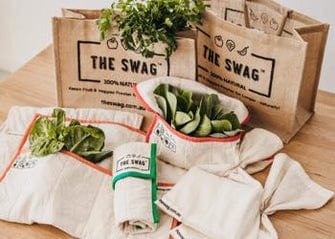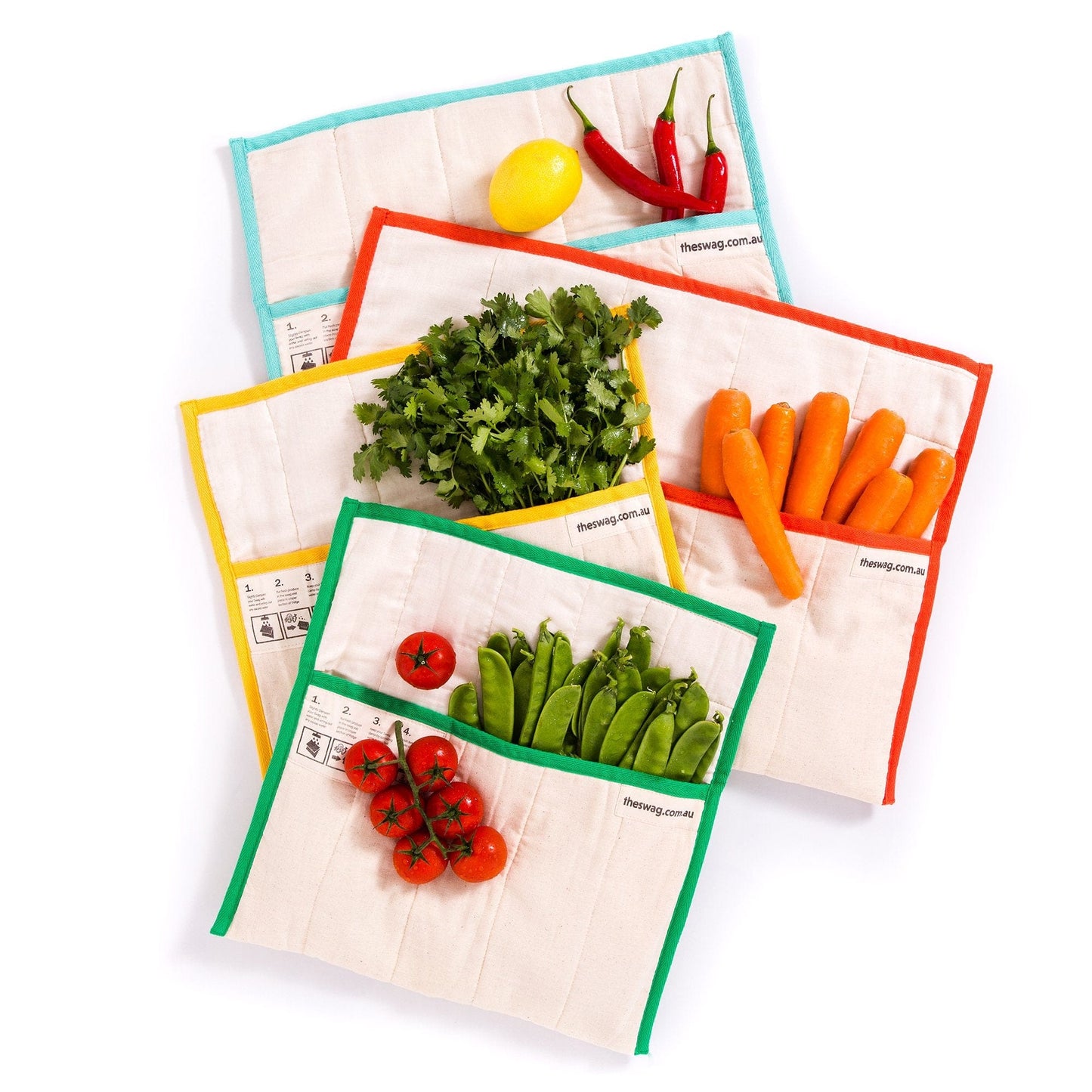THE SWAG BLOG — the swag bag
5 Tips For a Zero-Waste Camping Trip
Planning a camping trip? Discover 5 easy zero-waste tips to cut plastic, reduce food waste, and travel lighter while keeping your adventures eco-friendly.
How to Keep Cucumbers Fresh Using The Swag
Keep cucumbers fresh and crunchy for weeks with The Swag! Learn the best way to store cucumbers and prevent them from going soggy or mushy.
5 Reasons to Ditch Plastic Containers for The Swag
Discover 5 reasons The Swag is better than plastic food containers. Keep produce fresh for 2+ weeks, cut waste, and ditch toxic, non-compostable plastic.
How Damp Should The Swag Be to Keep Produce Fresh Longer
The secret to The Swag’s magic is the right moisture balance! Learn how to dampen your Swag correctly to keep fruit and veggies fresh for 2+ weeks.
It's Time to Take Food Waste More Seriously!
Food waste has a huge environmental and economic impact. Learn why reducing waste matters and how small changes at home can help stop good food going to landfill.
What Exactly are Organic Fruit and Vegetables and are They Worth the Extra Cost?
What are organic fruit and vegetables, and are they worth the extra cost? Learn how they’re grown, their benefits, and when choosing organic really matters.








